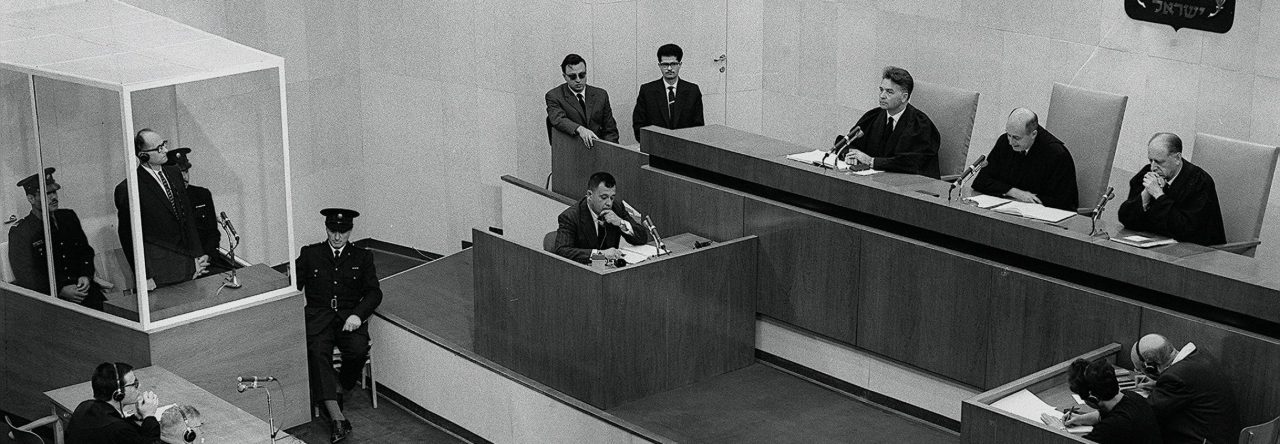On December 11, Al-Jazeera’s program “From Washington” held a discussion on Middle Eastern studies in the United States. Chief guest: Professor Rashid Khalidi, the newly-seated incumbent of the Edward Said Chair in Arab Studies at Columbia University, and director of that university’s (government-subsidized) Middle East Institute. He said little that was original or surprising—until the end, when he blew a gasket and uttered the sort of thing he would only dare to say in Arabic.
It happened like this. At one point in the discussion, Khalidi criticized think tanks “that don’t want true dialogue with people whose views differ from their own, but who want to force their opinions on American citizens and the world.” He mentioned, by way of example, The Washington Institute for Near East Policy, which he labelled “the fiercest of the enemies of the Arabs and the Muslims.”
The moderator, Hafiz al-Mirazi, played devil’s advocate. Hadn’t the Institute often hosted Arabs and others holding diverse views? It had provided a podium for Nabil Amr, Palestinian information minister, as well as Egyptian presidential adviser Osama al-Baz. Just recently, Washington Institute mainstay David Makovsky had written a joint op-ed with an Egyptian writer from Al-Ahram (the reference was to Dr. Hala Mustafa, a visiting fellow), on democracy promotion in the Arab world.
At this point, Khalidi boiled over:
By God, I say that the participation of the sons or daughters of the Arabs in the plans and affairs of this institute is a huge error, this Israeli institute in Washington, an institute founded by AIPAC, the Zionist lobby, and that hosts tens of Israelis every year. The presence of an Arab or two each year can’t disguise the nature of this institute as the most important center of Zionist interests in Washington for at least a decade. I very much regret the participation of Arab officials and non-officials and academics in the activities of this institute, because in fact if you look at the output of this institute, it’s directed against the Palestinians, against the Arabs, and against the Muslims in general. Its products describe the Palestinians as terrorists, and in fact its basic function is to spread lies and falsehoods about the Arab world, of course under an academic, scholarly veneer. Basically, this is the most important Zionist propaganda tool in the United States.
This is the intimidating language of Arab boycott, aimed against an institution with entirely American credentials. The Washington Institute is directed by Ambassador Dennis Ross, who was the chief Middle East peace negotiator in the presidential administrations of George H.W. Bush and Bill Clinton. He has always been a model of balance (unlike Khalidi, whose forays into politics have always been to advise Yasir Arafat). The Washington Institute is run by Americans, and accepts funds only from American sources. (Contrast with the donors of Khalidi’s chair, whose precise identities Columbia still refuses to reveal.)
And it is outrageous for Khalidi to denounce the Arabs who have come to The Washington Institute as blundering dupes. I was there in the fall, when the Institute brought to Washington a group of Palestinian Fatah activists associated with the Tanzim (an invitation for which Ross took a lot of flak). While in Washington, these Palestinians said things that could hardly be squared with “Zionist propaganda.” Who is Khalidi to tell them they made a “huge error”? For its annual fall conference, the Institute flew in three members of Iraq’s Governing Council, whose country would still be under Saddam’s iron rule if Khalidi had had his way. Who is he to tell them they made a “huge error”? The year before last, my stay coincided with that of Ali Salem, the Egyptian playwright who has faced down Egypt’s entire literary establishment, and who once was detained for his collaboration with democracy activist Saad Eddin Ibrahim. Who in the world is Khalidi to tell him that he made a “huge error”? I doubt these steel-belted Arabs would ever allow themselves to be intimidated by a pampered prof enjoying the full Columbia treatment.
I note that Khalidi has never made a comparable statement in English, probably for this reason: it would damage his reputation as a bridge-building moderate. To maintain that image, he’s even shared podiums with members of The Washington Institute (to wit, David Makovsky). But Khalidi in Arabic, on Al-Jazeera, is someone else altogether. There he is the bridge-burner, the zealot who would warn other Arabs away from The Washington Institute because it is “Israeli,” and a “Zionist propaganda tool.” Behold, Arab-style McCarthyism.
Khalidi’s crude outburst won’t stop the caravan, but it does put yet another question mark alongside his name. I have never called him an apologist for terrorism, and I respect some of his historical scholarship. But I once heard him speak to a predominantly Arab audience, and it alarmed me. This latest statement confirms something I’ve suspected ever since: he isn’t all he appears to be. Caveat emptor—buyer beware. (Too late for Columbia, but not for the rest of us.)
And speaking of Columbia, what has Khalidi done to promote what he calls “true dialogue” since his September enthronement in the Edward Said Chair? Two Israelis—academic post-Zionists—spoke at his institute this past semester. He and they would have nodded in agreement over Israel’s alleged misdeeds. I don’t think that’s good enough, and it leaves me wondering (again) why his institute gets what The Washington Institute doesn’t get: a $400,000-a-year Title VI handout from the American taxpayer. It’s a dubious mechanism that puts such a hefty subsidy at the disposal of an Arab boycotter. It really should be fixed.
